Harmonix Music Systems is not your average developer. Ever since its founding in 1995, the Boston-based studio has specialised in the dazzling crossover between music and interaction – from early and largely unknown projects such as CamJam, which used body movements to trigger audio sequences, to the globe-conquering phenomena of Guitar Hero and Rock Band.
It was Guitar Hero that catapulted Harmonix into the big leagues – but after the second game in the series, the brand rights went to Activision and Harmonix began to focus on Rock Band, a cover version of its own hit single. As part of this, Harmonix had to surrender some of its independence: in the days before Rock Band was an established hit the studio needed help to both secure the rights to thousands of songs and distribute them (and the replica instruments) on an even greater scale than before. A takeover by media giant Viacom and partnership with MTV took care of that.
RB and its sequels were commercial and critical hits, but despite this success, towards the end of the last hardware generation it felt like the rhythm genre had played itself out – not least thanks to Activision milking Guitar Hero mercilessly until its teats bled. Rock Band 3, Harmonix’s last entry in the series, was released in 2010 – and almost immediately afterwards, the studio’s corporate owner Viacom sold it on at a loss, clearly believing the genre had had its day.
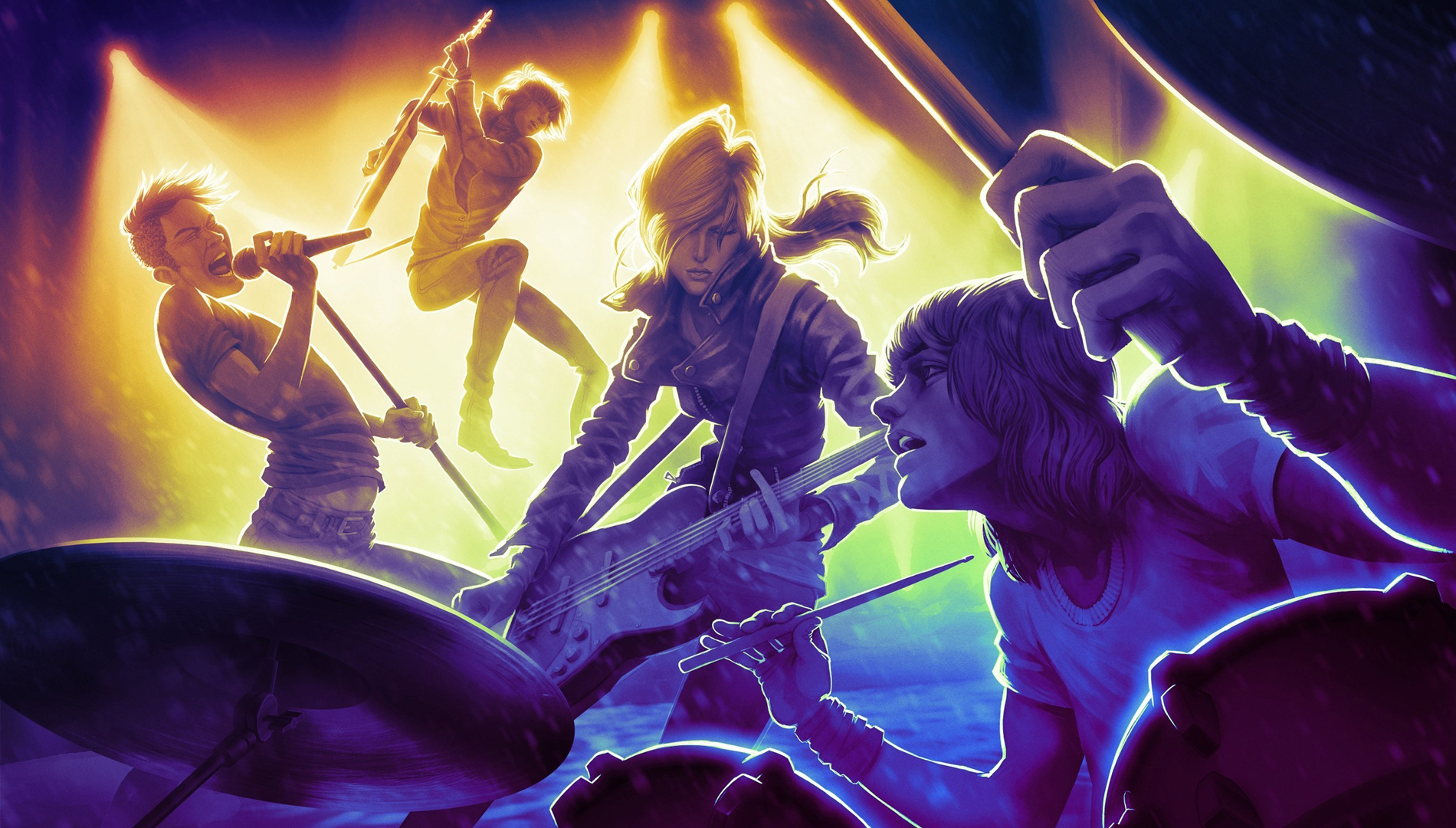
So it’s fair to say that, just over four years later, a hell of a lot has changed at Harmonix. And the big, beautiful headline is that Rock Band is coming back.
“I love where we are right now,” says Daniel Sussman, a company veteran of more than a decade, and the productmanager for Rock Band 4. “In fact, there are a lot of elements about the studio and the studio culture that remind me of where we were in the early 2000s. A sense of ownership and creative ambition that is a function of [how] we have a team of people who can make decisions and they don’t have to ask permission from anyone.”
In other words, the suits are out and tie-dye is in! “A lot of things were made possible through Viacom and MTV,” laughs Sussman. “They really helped build the Rock Band brand. But, yeah, there’s something about having a lean approach – we can really follow our own instincts and build a game we’re excited about for a community that never left. There are hundreds of thousands of people still playing and loving Rock Band, and that is really informative as we try to figure out what we want to do and who we’re doing it for.”
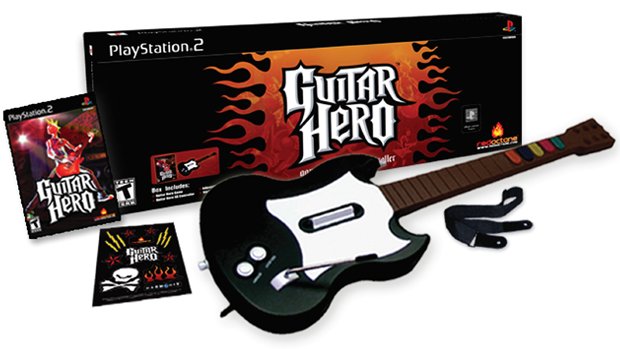
This is an interesting counterpoint to what has become a widespread perception – the idea that rhythm games died out because they saturated the market. “You know, I think a lot of people saw the first Guitar Hero as this fad, a trend, and were surprised that a ‘band simulation’ was able to chart as high as it did and sustain for as long as it did,” says Sussman. “You look at that arc through the lens of creative game development, and at the core of those experiences is a fantasy that I don’t think is a fad at all. It’s not a trend.
Sign up to the GamesRadar+ Newsletter
Weekly digests, tales from the communities you love, and more
“People are listening to music in record numbers, and I think the genius of a game like Rock Band is the degree to which you are immersed in music that you really love,” he continues. “And that’s not a trend. That’s not a cultural trend at all – that is a function of life. I don’t know, this is deep and heavy stuff and I don’t want to get too philosophical about it – we’re making a game – but the relationship between people and music is the sort of currency that we’re spending on the game. There’s value in that fantasy.”
So how is RB4 going to build on what’s come before? “On the one hand we have a core mechanic that is accessible, it’s battle-tested, it works well and it’s really fun,” says Sussman. “And at the same time, I think that a lot of the innovations we applied specifically to RB3 actually fractured our audience. The sprawl of that game made it very difficult for people to play together; there were so many instrumental combinatorics.
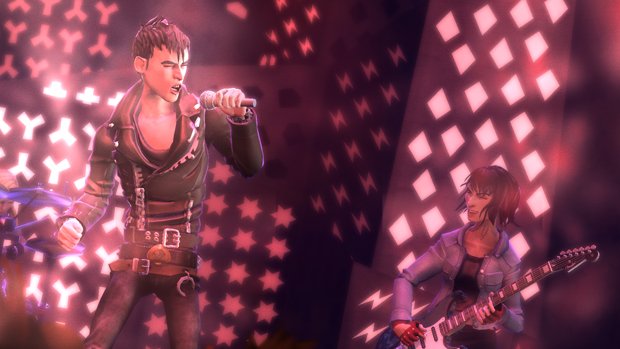
“Looking at our design for RB4, one of the words we’re using to describe our approach is ‘focus’ – we really want the features we’re developing to be forefront to everybody who plays the game, and to support the core Band experience – guitars, drums, vocals, bass, the things that every game has – and make sure that we’re evolving the game in the way that hits the most people.”
No more keytar? Say it ain’t so! But Sussman’s point is a good one – keyboards are awesome, but they’re not as core to rock music as guitar and drums. What else does this new focus mean? No locked content? A streamlined interface?
“Well certainly we want to streamline the experience in the sense of having fewer button-presses from main screen to game,” says Sussman. “But it also applies to the evolution of the gameplay itself and making sure we are focusing our efforts on things that will unite our audience, get people together.
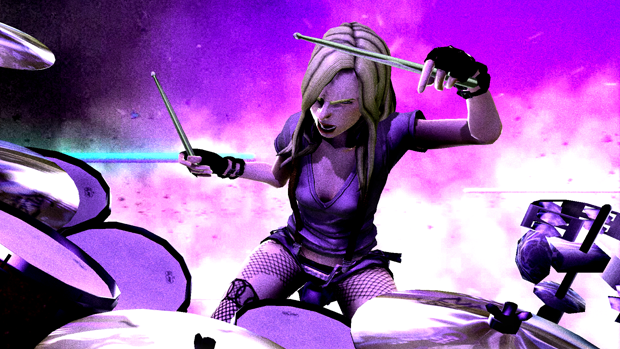
“Without getting into specifics, we’re looking very carefully at social dynamics – real, in-room social mechanics, not social network stuff – the relationship that a band of people have when they’re playing music together,” he says. “And trying to develop features that increase the skill component, which I think is straightforward, with some of the nuance of the relationship that, say, a drummer and a bass player have, or a singer and a lead guitar player.”
We guess that means opportunities to jam together at certain points? “Well there’s a lot of space for improvisation and expression,” says Sussman. “You think about the fact there’s a singer with a mic, and that you could probably do a lot of clever things that are more than just singing the note tubes – stuff like that. Anything else we can do across the band to imbue a player with a sense of sort of personal expression, what can they do to really immerse themselves in the fantasy.”
A bit more depth than saving each other with star power, then. “Yeah! Though that’s one of those things that works, it’s a heads-up moment where you realise you have a relationship with the other folks in the band.” The game itself is one thing, but the most impressive fact about RB4 for us as series fans is that Harmonix is not only working to transfer your DLC library, but also committing to making Xbox 360 peripherals work on Xbox One.
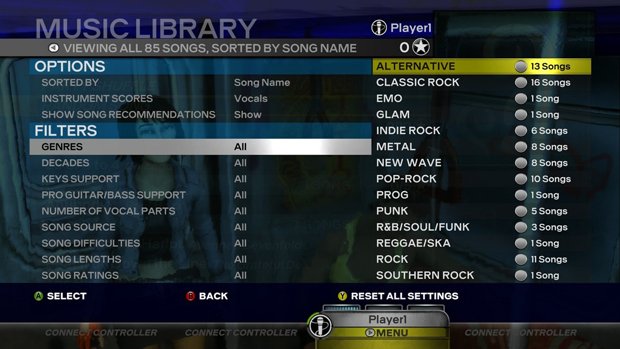
“Going all the way back to Rock Band, we’ve always had the faith in our conviction that the best thing for the franchise is the best thing for the customer,” says Sussman. “Which here means protecting the investment that people have made. And, y’know, to not develop business strategies around forcing people to buy new hardware or only use our hardware instead of whatever they might have. We view compatibility as the right thing to do, both from the side of our audience – what would we expect as a bunch of players? – and from the business side.
“On the DLC side we have a long history of supporting entitlements game-to-game, it’s very challenging but it’s possible,” Sussman continues. “We did it on Xbox One already with Dance Central Spotlight. But the Rock Band library is, like, 5,000 songs, so the logistics…” Sussman goes into some impressive detail about what a manual process this is, but what intrigues us more is the slightly hedged language used with regards to the peripherals – almost as if Harmonix really wants to guarantee compatibility, but is being held back.
"With the hardware it's a little different – the technical capabilities are more rigid both in terms of what we can support with software and what MadCatz can do in the hardware space, and then also the decisions Microsoft made about the radio receivers in the Xbox One,” explains Sussman. “It’s different technology to Xbox 360. So that is an active dialogue, something we’re working on very hard, and the only reason some of our language is a little noncommittal is that we don’t control our own destiny on that front.”
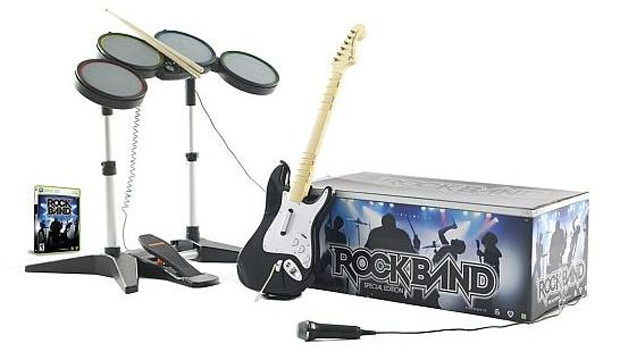
OXM has total faith our Microsoft overlords will do the right thing. There will also be new instruments, of course, with shiny Xbox One logos and everything – but because of the decision to support ‘old’ hardware, Harmonix actively does not want to add new buttons or controls. “We want the basic footprint and functionality to be consistent,” says Sussman. “But the build quality will be much higher: things such as the tilt sensor, button architecture, these are things that we can improve with better switches and better mechanical parts than we could use in years gone by.”
So RB4 will, barring disasters, let you use most of your existing DLC library and any Xbox 360 controllers that are still in the attic. This brings us full circle to Harmonix itself and, following Viacom’s sale of the studio, the fact it’s once more an independent developer – although we tell Sussman it feels weird calling it ‘indie’.
“But it’s absolutely right,” laughs Sussman. “Looking at our history and where we are right now, there are a lot of unique things. One that really defines us as an indie studio is that we can follow our own instincts, both creatively as a studio and in how we bring this game to the market. We’re taking a very scrappy approach to publishing this time around. There’s definitely an element of the passion play about RB4 for us – this is a game we understand better than anyone else in the world.”
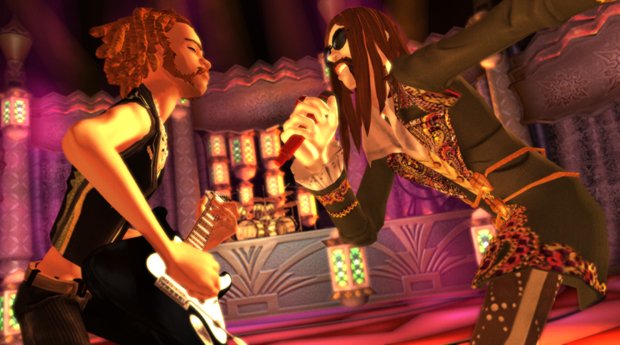
We agree, but the million-dollar question is what an undiscerning public will do when faced with a choice between the scrappy Rock Band 4 and the newly-announced Guitar Hero. “Everyone’s going to do what they’ll do,” says Sussman. “A principle for us is not to get bogged down in what anyone else is doing, and to trust our own instincts and design capabilities. The game we’re developing here is a game that we will all put on a pedestal and preach about as the best Rock Band that has ever been made.
“I feel like that’s the best strategy – we just focus on the game, and our relationship with the discerning game customer. We understand music gaming better than anyone, and pride ourselves on [our] authenticity and quality. These things are in our control – anything else is a distraction.”
The official source for everything Xbox One, Xbox 360, and Xbox Series X. We're also a magazine, covering all things Xbox in the UK and the US. Originally established in 2001, the magazine was discontinued in April 2020.



